People see sex. Naturists see something else.
How early experiences with casual nudity—and later with naturism—reveal a culture built on respect, comfort, and normalcy
Most people outside the naturist community that hear the word nudism, often they imagine something far more sexualized than the reality. I get it. Even before I ever stepped into a true naturist environment, the only nudity I’d really experienced was in everyday moments like locker rooms, shared showers, and gym spaces back in college and grade school.
My comfort with nudity didn’t start on a naturist beach or at a resort. It started in the most ordinary place, the college gym locker room. Walking through the locker room, grabbing a shower after a workout, and chatting casually with other guys while nobody thought twice about being nude was simply part of daily life. Nobody stared. Nobody acted weird. It was just what you did. It didn’t start off that way for me but after some time, I was doing the same as everyone else, just simply walking around without a towel wrapped around me to hide my body.
Those spaces taught me something that wouldn’t fully sink in until years later. When nudity is handled casually, it feels casual. When people treat it as normal, it becomes normal. The idea that nudity equals sex didn’t match what I experienced there. It was just a bunch of students getting clean, getting ready, or cooling off after working out in the gym.
As naturist author Mark Storey puts it, “Naturism is about being comfortable in your skin and connecting with nature, not about sexuality. The moment you step into a real naturist environment, you realize how ordinary and wholesome it actually is.”
I didn’t realize it then, but those communal showers and locker rooms laid the groundwork for the ease I would later feel discovering naturism.
My first steps into naturism
When I eventually chose to explore naturism intentionally, I wasn’t chasing a grand revelation. I just wanted comfort. I wanted to quiet the constant body expectations I’d internalized. I wanted to be more present. What I found was something deeper than I could have predicted. I started off during the COVID-19 pandemic by joining other naturists and nudists online in spaces that had been created for online social nudity.
My first in-person social nude experience happened about a year after the lockdowns had been lifted. The first time I got nude with others in a public setting was at the Dakota Hot Springs in Colorado. Within minutes of being in my first naturist setting, everything clicked. I felt grounded, comfortable, and strangely at home. No one was staring. No one acted awkwardly. The energy was almost identical to what I felt in those college locker rooms. Familiar. Safe. Completely normal.
That experience inspired my own reflection, something I’ve said many times since: “Nothing prepared me for how natural naturism would feel. Within minutes, I stopped thinking about being nude and started thinking about how relaxed and grounded I felt. That’s the real magic of this lifestyle.”
Many naturists talk about the physical and mental benefits of nudity, and I’m absolutely one of them. My body feels freer without clothes. The air hits differently. The sun feels more alive. Even my breathing becomes more intentional.
Author Dr. Paul Bowden sums it up beautifully by saying, “The non-sexual foundation of naturism is what makes it so powerful. It’s not about eroticism. It’s about authenticity, self-acceptance, and living naturally.”
Naturism deepened my relationship with nature in a way I didn’t expect. Feeling wind, water, and sunlight on bare skin creates a sensory connection that clothing simply dulls. And it’s not just physical. It’s emotional. Being nude outdoors has become one of the most grounding practices in my life.
Naturist writer Richard Foley echoes this feeling when he said, “Being nude outdoors reminded me that my body is part of nature, not something separate from it. That shift in perspective is life-changing.”
For me that same feeling has also extended into the wood shop. I grew up working in the wood shop with my grandfather, crafting amazing decor pieces, and even some furniture items. In the last two years, I began working in my own wood shop at home more often, but the difference is that I am now doing my craft clothing-free. My connection to the wood I’m working with has deepened and I feel far more respect for the natural resources I am working with.
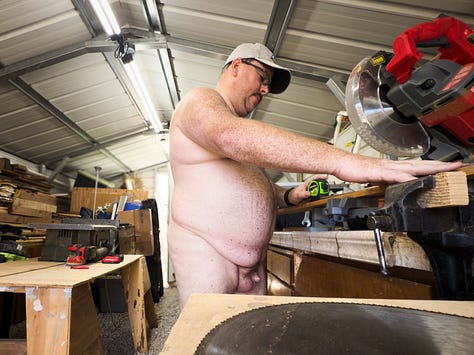
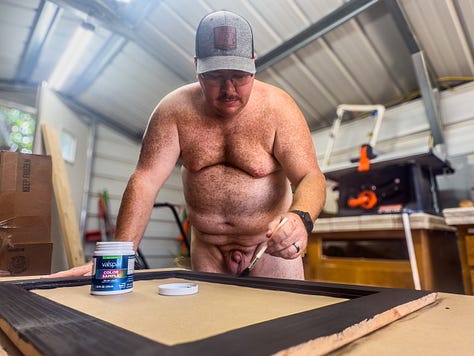
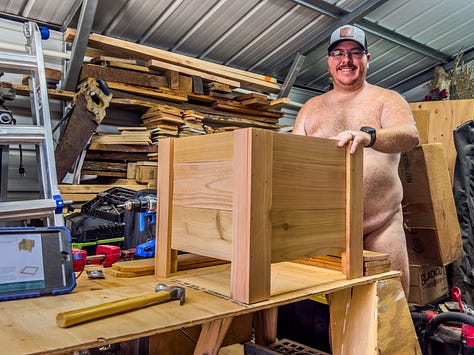
Sometimes the reason people embrace naturism is simple comfort. Clothes are restrictive, they itch, they squeeze and they distract. Once I learned how freeing it felt not to have that constant layer, it became clear why nudity feels so right for so many.
As I often tell readers, “For me, naturism is where my body feels at home. Not for attention. Not for shock value. Just for the simple comfort of being myself.”
A culture built on respect
One of the most misunderstood parts of naturism is how deeply respectful the culture is. Sexual behavior is not tolerated and boundaries matter. Families participate in naturism because they know the environment is safe and structured.
British Naturism’s Stephanie McManus said, “Once people realize that naturism is rooted in comfort, health, and human dignity, they begin to understand why families and individuals feel so at ease in nude spaces.”
In my own experience, I know that if people experienced naturism firsthand, most of the misconceptions would disappear overnight. It’s the most non-sexual environment I’ve ever been part of.
Naturism has reshaped how I view bodies, including my own. When you’re surrounded by real, unfiltered people, the comparisons and judgments start to fall away. You see humanity, not insecurity. You see authenticity, not performance. You get to know the real person, not filtered by the textiles of society.
Dr. Carol Queen explains it perfectly when she said, “People think nudity means sex because that’s the cultural script we’ve been handed. But naturism rewrites that script. It shows us that bodies can simply be bodies.” And in many ways, that’s what naturism has done for me. It didn’t just transform my comfort level. It transformed my perspective. My perspective on how I perceive my own body and that of others has significantly changed. It also changed how I interact with other people and with the nature around us.
So what is the bottom line to all of this? Naturism isn’t about sex and it never has been. It’s about honesty, comfort, connection and treating our bodies as natural and not something that is taboo or to be ashamed of. It can be simply summed up in one sentence, “Naturism isn’t about taking clothes off. It’s about taking pressure off.” For me, naturism feels like the most natural thing in the world. And looking back, maybe it always did. Maybe it was always intended to be that way.
Love this?
Support Dustin by subscribing to his blog 1 Naturist Life on Substack.



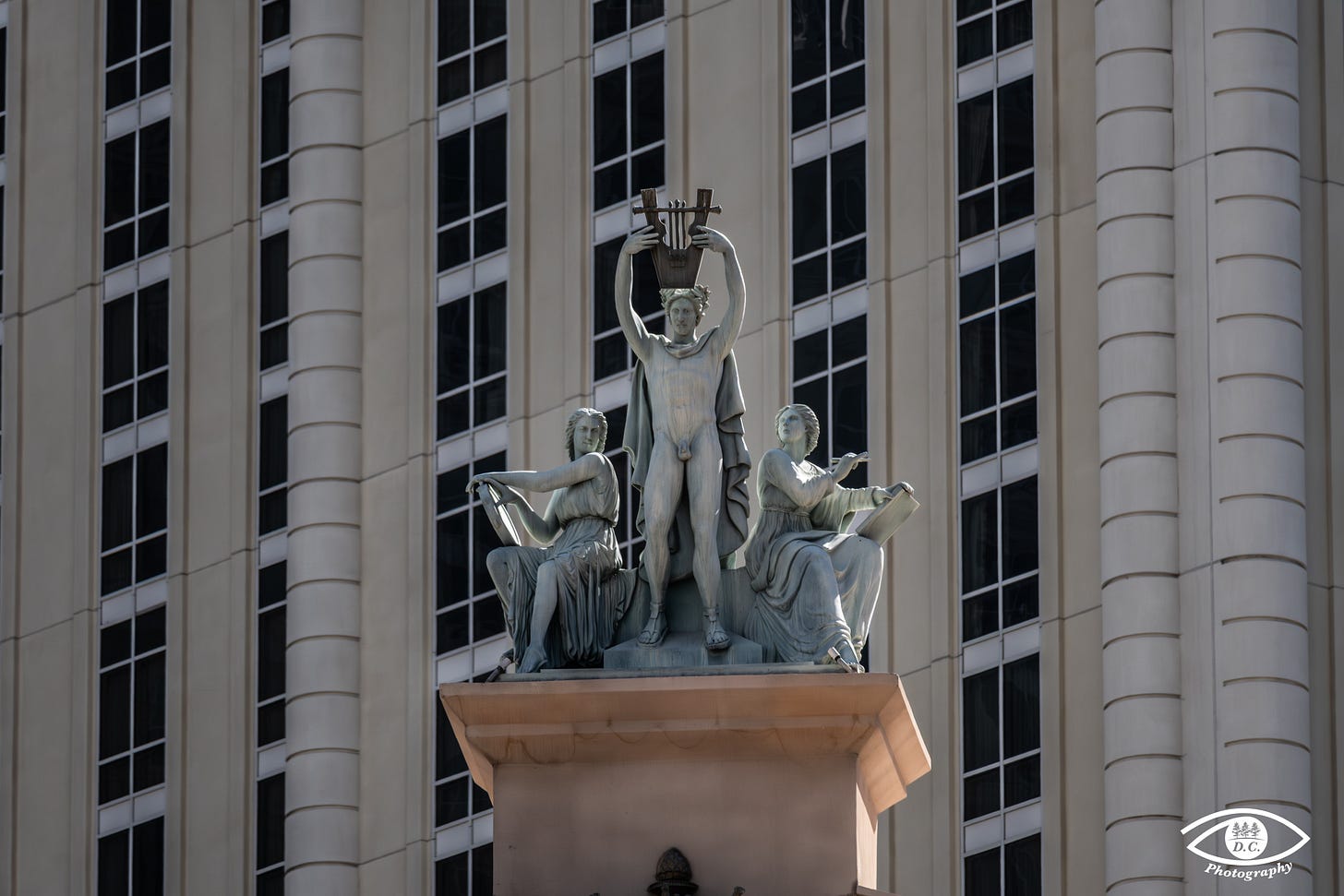
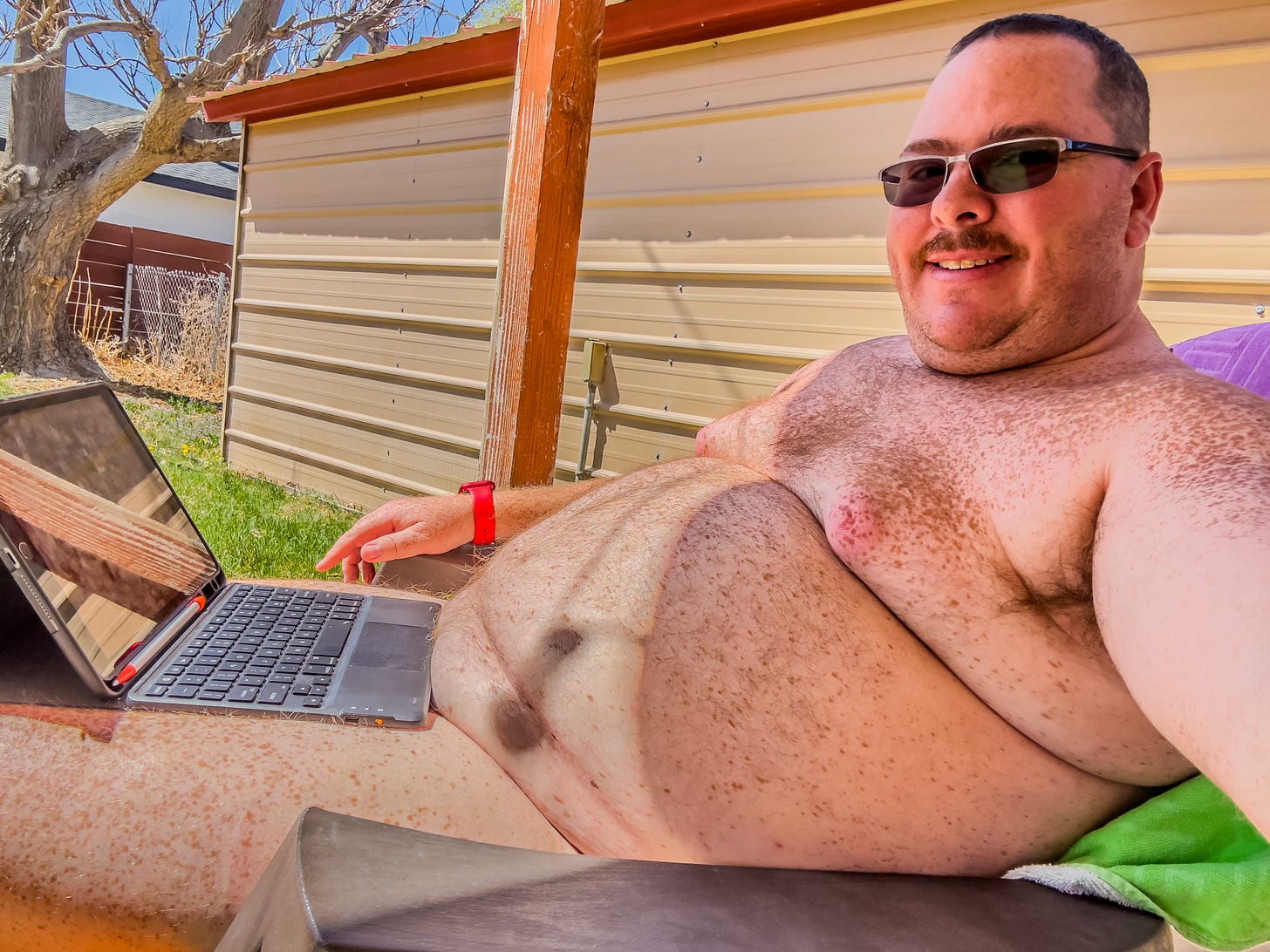
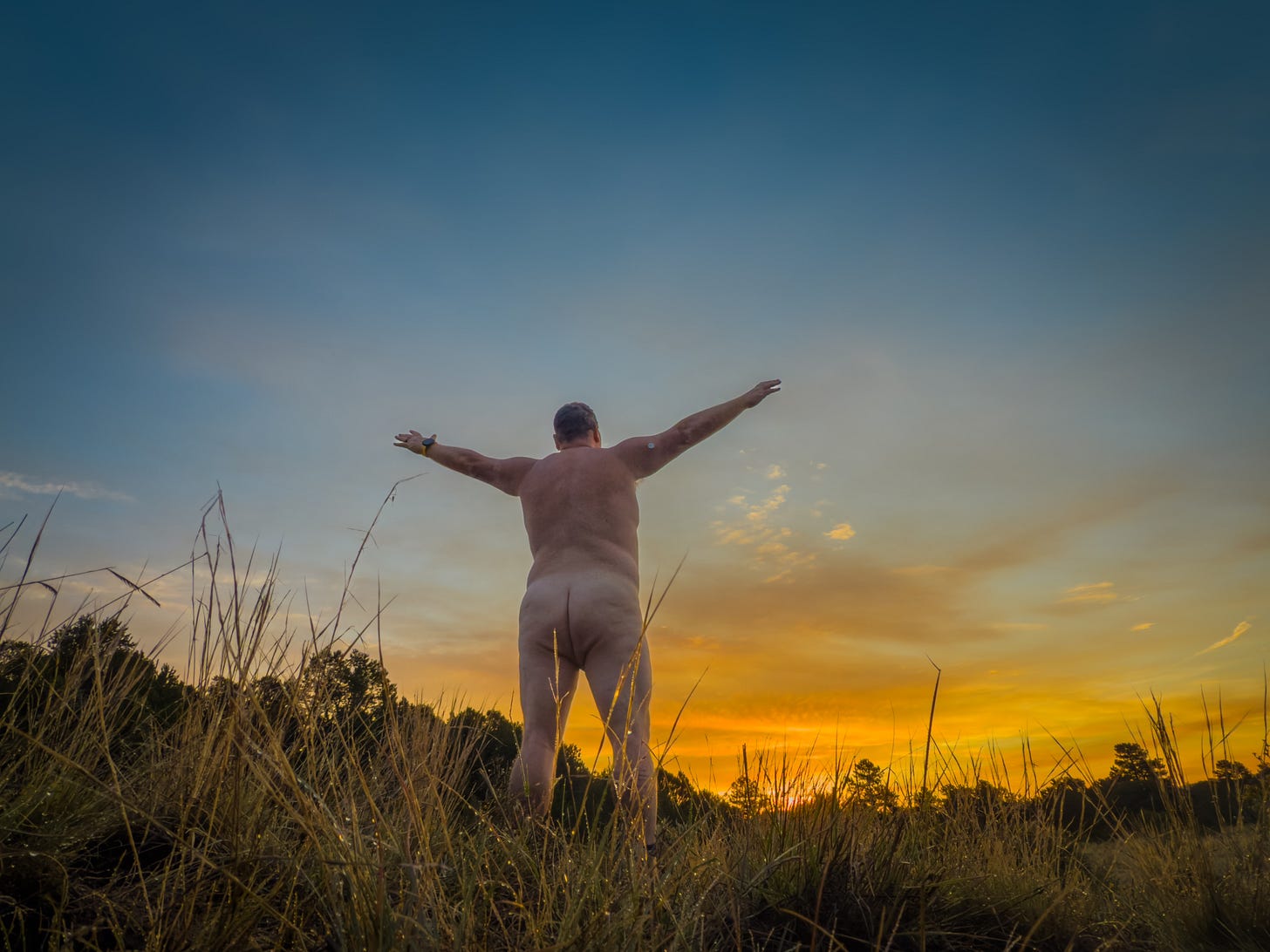
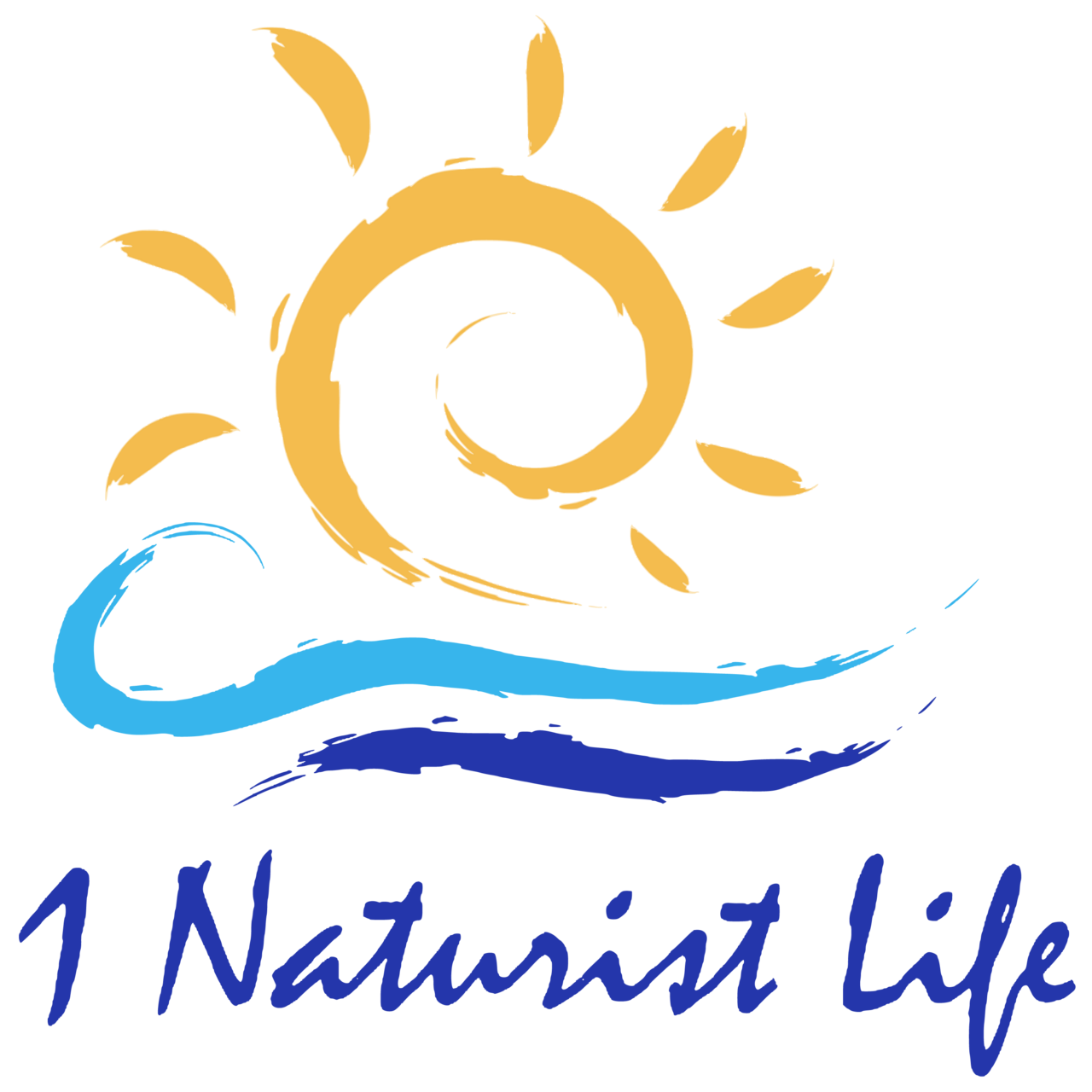
The locker room analogy reminds me of my first nude swim at a local naturist club. As a young man, I worried about how I would react seeing so many naked women. At the time I thought to myself that this was no different from being in the locker room, just casual nudity, no sexual thoughts at all.
Great article!